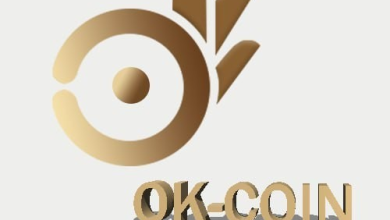The Russian Market Cyber Threat: Insights from the Dark Web

Introduction
In today’s interconnected world, the threat landscape of cybercrime continues to evolve. One particular area of concern is the russianmarket cyber threat, which has gained notoriety for its sophisticated and pervasive nature. The dark web, a hidden part of the internet, serves as a breeding ground for cybercriminal activity, including the sale of stolen data, hacking tools, and illicit services. In this article, we will delve into the Russian market cyber threat and provide valuable insights from the dark web.
Understanding the Russian Market Cyber Threat
The Role of the Dark Web
The dark web is a network of websites that are not indexed by search engines and can only be accessed through specific software. It provides a platform for cybercriminals to operate with relative anonymity, making it a haven for illicit activities. The Russian market, in particular, has become a hotbed for cybercriminals who specialize in various cyber threats, including hacking, identity theft, malware distribution, and phishing scams .
Cybercriminal Forums and Marketplaces
Within the dark web, cybercriminal forums and marketplaces serve as hubs for the exchange of illegal goods and services. These platforms allow cybercriminals to communicate, collaborate, and trade tools and information. Russian market cyber threat actors often frequent these forums to share techniques, buy and sell stolen data, and acquire hacking tools .
The Russian Underground Economy
The Russian underground economy is a thriving ecosystem that fuels the cyber threat landscape. Cybercriminals within this ecosystem operate in a hierarchical structure, with specialized roles and responsibilities. They collaborate and share resources to maximize their profits. Some of the key players in the Russian market cyber threat include hackers, malware developers, botnet operators, and money mules .
Insights from the Dark Web
Stolen Data Marketplaces
One of the most prevalent activities on the Russian dark web is the sale of stolen data. These marketplaces offer a wide range of data, including credit card information, login credentials, medical records, and personal identification details. The Russian market is known for its vast selection of stolen data, which is often sold at competitive prices .
Hacking Tools and Services
The Russian market is also a source for a variety of hacking tools and services. These tools range from exploit kits and remote access trojans (RATs) to distributed denial-of-service (DDoS) attack services. Cybercriminals can purchase or rent these tools to carry out their malicious activities. The availability of such tools on the Russian market contributes to the sophistication and prevalence of cyberattacks .
Digital Currency and Money Laundering
The dark web is heavily reliant on digital currencies, such as Bitcoin, for conducting transactions. These currencies provide a level of anonymity that facilitates illegal activities. The Russian market cyber threat actors leverage digital currencies to receive payments for their illicit goods and services. They may also use various money laundering techniques to convert their ill-gotten gains into legitimate funds .
State-Sponsored Threats
In addition to individual cybercriminals, the Russian market is also associated with state-sponsored cyber threats. The Russian government has been accused of conducting cyber espionage, hacking campaigns, and disinformation campaigns targeting various countries and organizations. These state-sponsored threats pose a significant challenge to international cybersecurity efforts .
Combating the Russian Market Cyber Threat
International Cooperation
Addressing the Russian market cyber threat requires a collaborative effort among nations, law enforcement agencies, and cybersecurity organizations. International cooperation is crucial for sharing intelligence, coordinating investigations, and developing strategies to counter the evolving threat landscape .
Strengthening Cybersecurity Measures
Organizations and individuals must bolster their cybersecurity measures to protect against the Russian market cyber threat. This includes implementing robust security protocols, regularly updating software and systems, conducting security awareness training, and adopting advanced threat detection and response mechanisms .
Improved Legislation and Law Enforcement
Governments around the world need to enact and enforce comprehensive legislation to combat cybercrime effectively. This includes establishing strict penalties for cybercriminals, enhancing international legal frameworks, and providing adequate resources to law enforcement agencies to investigate and prosecute cybercriminals involved in the Russian market cyber threat .
Conclusion
The russianmarket.to cyber threat is a significant concern in today’s digital landscape. The dark web serves as a breeding ground for cybercriminal activities, with the Russian market being a prominent player. Insights from the dark web shed light on the sophisticated tactics, underground economy, and state-sponsored threats associated with the Russian market cyber threat. By understanding the nature of this threat and implementing robust cybersecurity measures, individuals, organizations, and governments can work together to mitigate the risks and protect against this pervasive cyber threat.








